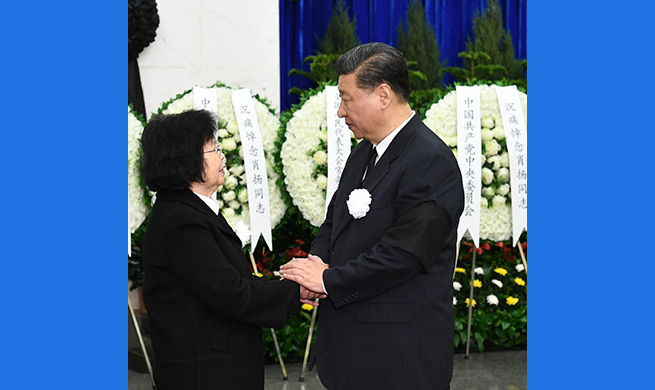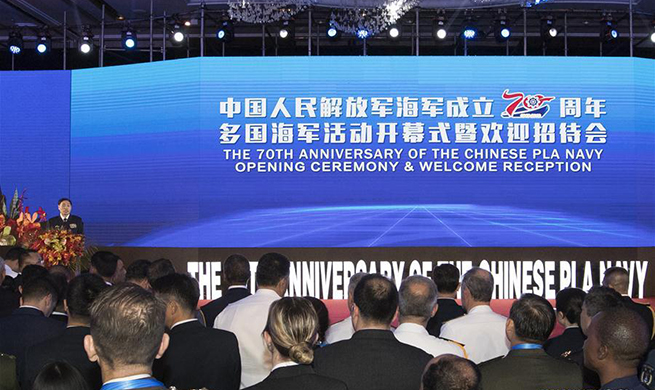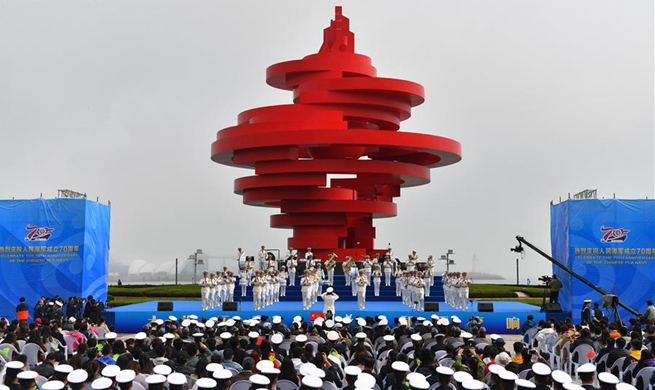WASHINGTON, April 22 (Xinhua) -- Import tariffs on foreign-made washing machines that the Trump administration imposed last year have brought additional income to U.S. domestic manufacturers but burdened consumers with extra costs, a study released Monday concluded.
While the tariffs on imported washing machines brought an additional revenue of about 82 million U.S. dollars to the U.S. Department of the Treasury each year, they nonetheless made U.S. consumers pay over 1.5 billion dollars more for the merchandise on an annual basis, found the study, a collaborative work of the University of Chicago and the Federal Reserve.
"We find that in response to the 2018 tariffs on nearly all source countries, the price of washers rose by nearly 12 percent," wrote authors of the paper, Aaron Flaaen of the Fed and Ali Hortacsu and Felix Tintelnot of the University of Chicago.
They added that the price of dryers, a complementary good not subject to tariffs, increased by an equivalent amount.
The tariffs, the study further calculated, raised the median price of washing machines and clothes dryers by about 86 dollars and 92 dollars per unit, respectively.
The Trump administration announced in January 2018 a 20-percent tariff on the first 1.2 million washing machines imported into the United States each year. The duties go up to 50 percent on additional units sold on top of that quota.
The White House claimed that foreign competitors were engaging in unfair trading practices by setting the washer prices too low, which resulted in a loss of market share for U.S. makers. President Donald Trump has touted the effect of a series of tariffs that he ordered to impose, saying U.S. trading partners have been footing the bill.
Monday's study, however, contradicted the president's assertions, at least in the case of washing machines.
"Factoring in the effect of dryers and price increases by domestic brands, our estimates for the 2018 tariffs on washers imply a tariff elasticity of consumer prices of between 110 and 230 percent," authors of the research argued.
One of the goals of the Trump administration associated with the tariffs is bringing manufacturing jobs back to the United States.
While the aim has been achieved as foreign companies such as South Korea's Samsung Electronics Co. and LG Electronics Inc. have decided to hire more U.S. workers, the job increase comes at a steep expense.
The study found that although the washer duties brought an increase in domestic employment amounting to roughly 1,800 jobs, those gains, however, would result in an average annual cost to consumers of over 815,000 dollars per job created.












